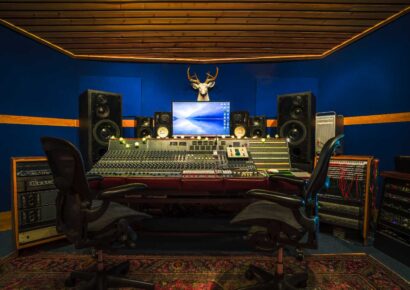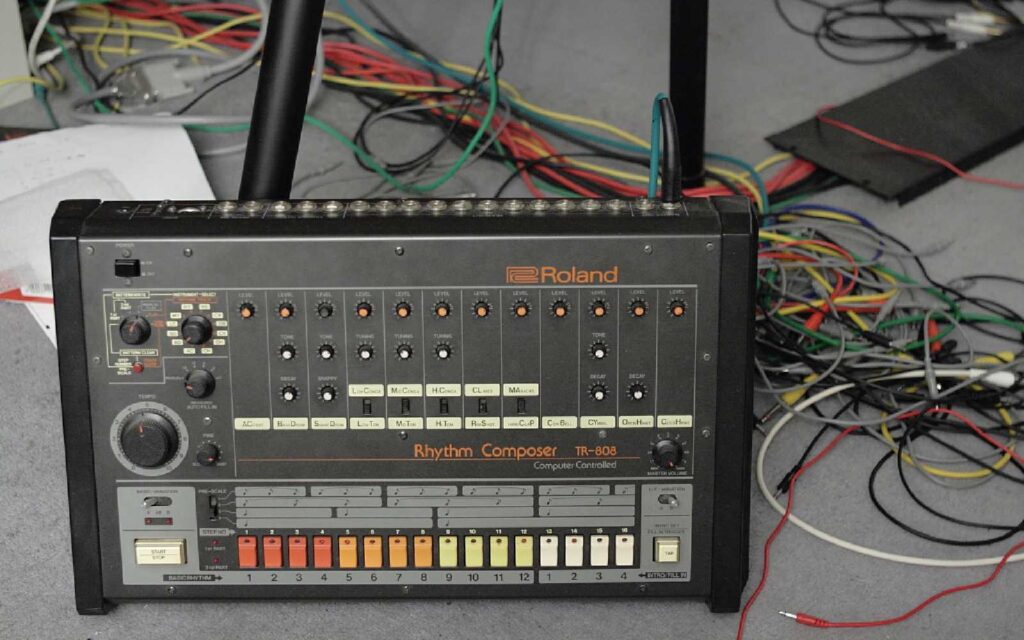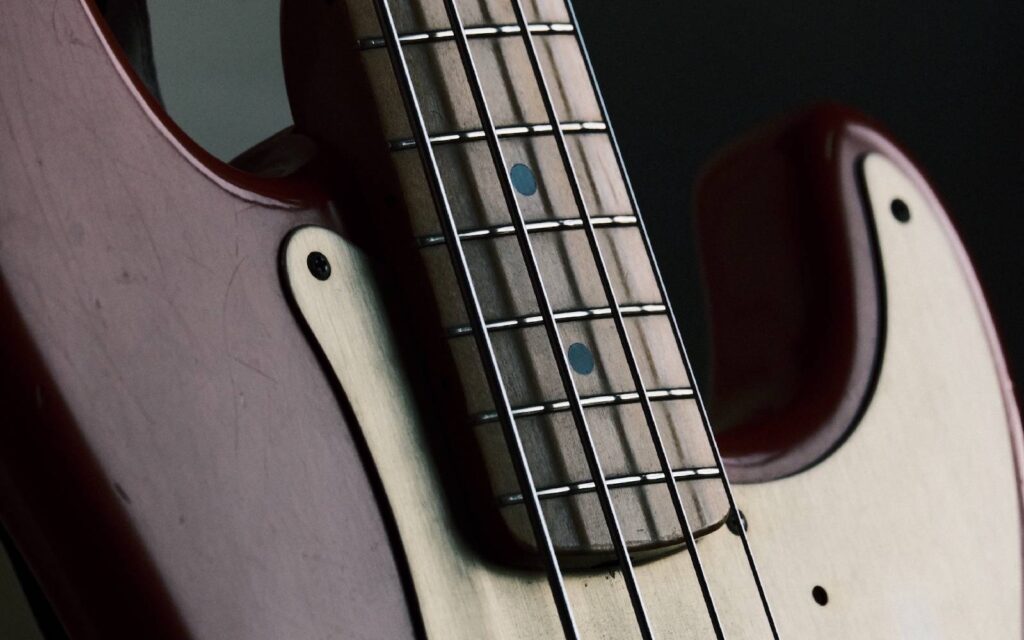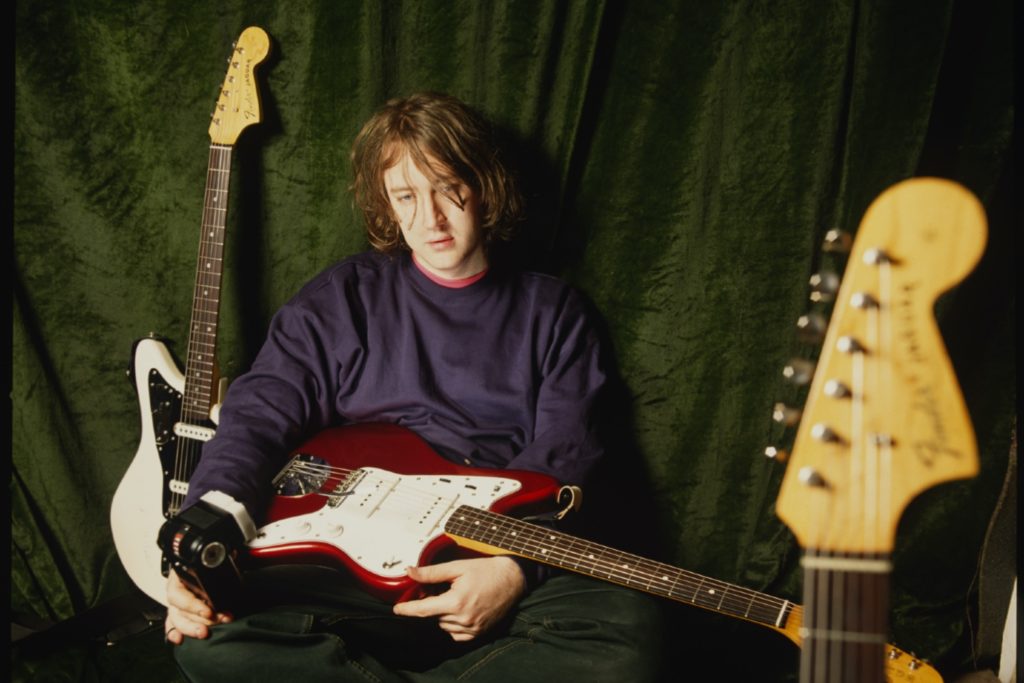Detailing his analogue recording process for Bring Backs.
It’s arguable that the crop of contemporary jazz artists to spring up from the UK in recent years ranks among some of the world’s finest musicians currently going. His style – an uncanny fusion of liquid Rhodes licks and clever chord inversions, smeared atop of off-kilter contemporary grooves from an ensemble of seasoned session cats – is one that’s resonated loudly among listeners in recent years.
A diverse melting pot of culture, style, history and sound, the scene sees artists like Yussef Dayes, Henry Wu, Jordan Rakei and Mansur Brown draw upon wonky hip-hop, neo-soul, alternative and electronic styles to create their lucid smorgasbord of vibe-heavy jams, breathing new life into jazz and laying down the blueprint for how the genre is perceived among the masses today.
Sitting smack bang at the centre of this scene is Alfa Mist; the East London-based pianist, producer and rapper who might just be one of the most quietly influential acts to rise in recent years.
Read all the latest features, columns and more here.
After debuting his first record in 2015 with Nocturne, Alfa Mist has risen to become a locally acclaimed beacon of the UK jazz community.
That debut was followed up by his internationally celebrated sophomore Antiphon – a dizzyingly good showcase of his sonic fundamentals – while 2019’s Structuralism only helped to further solidify his status as a rising titan as a producer, arranger and performer in his scene.
Funnily enough, Alfa wasn’t compelled to pursue jazz until his late teens, spending most of his adolescence making grime beats on Fruity Loops and honing his craft as a beat-smith.
This mightn’t seem immediately apparent when listening to his album Bring Backs, which spills over with impressive technical nous and tasteful instrumental sensibilities and paints Alfa as a performer with at least a decade’s worth of jazz noodling beneath his belt. We spoke to Alfa Mist back in 2021 about the album.
Perhaps even more unique still, however, is that the album was pieced pieced together by a poem from Hillary Thomas exploring the notion of diaspora; a sentiment also reflected in Alfa’s own lyrical content across Bring Backs.
“My mum came from Uganda to London, and then I was born in London,” Alfa says. “It’s me asking myself what my journey is, and understanding what my mum’s journey is, because my mum’s had her own separate thing to go through, but our experiences are intertwining with each other.
“(On the album) I’m talking about myself through a lot of the raps, but I think Hillary’s talking more about the parent’s journey, because one wouldn’t have happened without the other.”
Mist says that he first started digging deep into jazz after hearing the likes of J Dilla and Madlib sample the genre in their productions, detailing the extent of which he’d practise piano to finesse his chops as a teen.
“All I did from the start was learn a song that my fingers couldn’t physically play, and once I did that, I learnt another song that my fingers couldn’t physically play, so you’re always getting better,” he explains.
“Literally, when I was at uni, it was just hours every day doing that. Then you get to a place where you can put some of the stuff you’re learning into your own music. I only kind of wanted to sharpen those tools for my own music, not really to show off about anything else.”
Recorded at analogue haven Gizzard Recording in London during a slight gap between lockdowns in 2020, Bring Backs was entirely written and produced by Alfa, who recruited the likes of Jamie Leeming, Kaya Thomas-Dyke and Johnny Woodham to appear on the record.
The record was largely tracked over the span of a single week, with Alfa also conducting additional sessions around the time with cellist Peggy Nolan and bassist Rocco Palladino, son of Pino, and every bit just as good as his old man.
As if he wasn’t busy enough working on Bring Backs, 2020 also saw Alfa release a string of other recorded projects, including an album of solo piano compositions and a reissue of collaborative effort alongside R&B vocalist Emmavie.
“I just make new ideas pretty much every day to keep myself creatively sharp,” he says. “I was making ideas with an album in mind basically, and just as that first little lockdown started to lift, I got a week in the studio and then just recorded it to tape and that was it.”
The making of Bring Backs also marked Alfa’s first time recording directly to tape without any digital backups, and it seems like the Londoner relished in the experience of working with the brittle (but undeniably brilliant) format.
“I feel like it gives you the performance of when you’re on tour and you’re doing a live show, because you want to put on the best show for the audience,” Alfa says of the recording method. “It just gives you that extra pressure.”
Despite opting for such a unique performance-based analogue recording process, Alfa notes that every song that appears on Bring Backs exists as some form of MIDI beat stowed away on Logic Pro, with those demos then being sent on to each bandmate to learn and vamp over.
It might seem like an unorthodox transcription method to the average jazz session artist, but Alfa says it’s his prowess as a producer – both in and out of the box – that really helps to provoke stellar performances from such skeletal digital sketches.
“I just put it all down and I’m like, ‘this is the groove and this is the feel I’m going for,” Mist says of his writing process. “Learn this groove first and then if you can improve on it, do your own thing and grow from it, but this is the intention’.
“I bring that to the band, and kind of just let them do what they want. But as long as the intention of an idea exists beforehand, I think that’s a pretty easy way to get my point across, if that makes sense.”
While the entire performing ensemble on Bring Backs feed off one another’s own musicality equally and trade solos in synchronous harmony, it’s difficult to not marvel at Alfa’s performances across the record.
His knowledge of inversions creates for some of the album’s most striking moments, and his deft feel across the keys is sublime to hear in action.
More-so to the fact, however, is the clarity of Alfa’s tape recordings and his choice of sound equipment, which are each crucial to the record’s overall ambiance.
Alfa notes that although he once had near-daily access to an actual old-school Rhodes, many of the keyboard sounds on Bring Backs came courtesy of Yamaha’s range of keyboards.
“I used to share a studio with Jordan Rakei and I’d use his Rhodes and my Montage, but then Yamaha came out with the Yamaha CP-88,” he says.

“It’s got a really good Rhodes sound and it’s a lot lighter than the Montage, so I just tend to use that for everything. The Montage is good for when you want some other sort of synths, but then there’s the Yamaha Reface, which does really great synth stuff as well.”
After rising to prominence organically and releasing all of his previous projects independently, Alfa took the plunge last year and signed with prominent indie label ANTI- ahead of the release of Bring Backs.
While the match might seem a little peculiar on paper, it’s clear that the label’s corporate ethos perfectly aligns with Alfa’s creative needs, and the two parties have each benefited from the other’s company.
“It’s been interesting,” Alfa says, reflecting on the process of signing the deal. “It’s obviously been via lockdown, so there’s been a bunch of emails, but you’re seeing them work on a much bigger scale than you usually would, because I’m used to doing things myself.
“Now, we’ve got to clear everything with four or five different people before it comes out, but they’re all good people. That’s what I looked for: that’s the only reason I signed, because there were good people. It’s a pretty short deal, to be honest, but I think this album has gone really well.”
Alfa Mist, like many of his contemporaries, first rose to prominence on SoundCloud during the platform’s golden era in the mid-2010s, where artists like Tom Misch, Clams Casino, Kaytranada and Chance The Rapper all cultivated the communities that would help them to prosper today.
However, there’s been a lot that’s changed in the music industry since those halcyon days, and Alfa is all too aware as to how the digital consumption of music has changed since.
“There was something there during that era, man. There should be documentaries on what was going on there,” he says.
“But yeah, that’s definitely got now. They put ads in it and stuff, and major labels got involved, but it was a good time. I think it gave a lot of people the drive to finish a project and put stuff out, instead of just practising your instrument all day.
“I think that’s what’s helped me more than anything, you know, the DIY way of doing things: the internet, YouTube, everything there is. I think that’s what’s helped me more than anything else.”
Bring Backs is out now via ANTI- Records.







